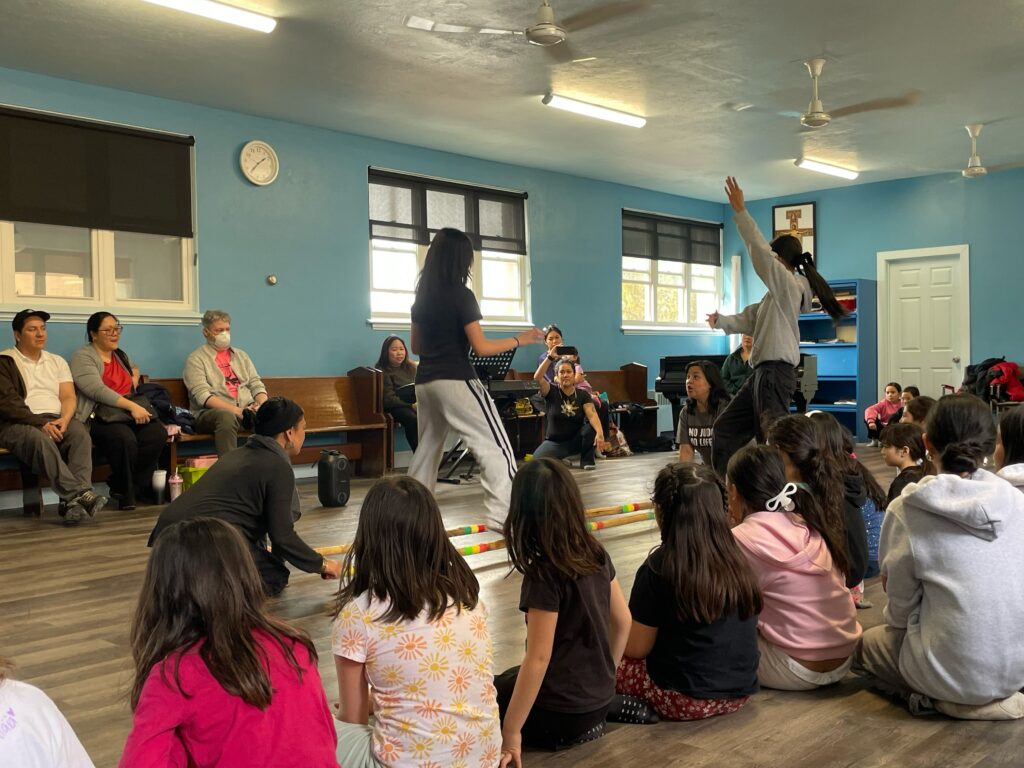By Iya Mendoza
Danny Arriola immigrated from the Philippines to Canada with his wife and two kids in 1974. A decade later, Arriola founded the Philippine Dance Troupe of Ottawa (PDTO), a local flagbearer of Filipino culture.
The troupe has been teaching Filipino folk dance and song for over four decades. Their mission, as stated on their website, is to promote Filipino culture and pass down the heritage to younger generations.
Arriola says his daughters were interested in dance as they grew up, but had nowhere to express this passion as only an adult troupe existed at the time. As a result, Arriola gathered some local Filipino choreographers and created a new troupe for his children.
“Our main goal was just to have our kids learn the Filipino cultural dance.”
The troupe’s first performance was in April of 1984 at the Children’s Hospital of Eastern Ontario (CHEO).
Nora, Arriola’s wife and chairperson of the Philippine Independence Committee of the Ottawa Valley, says they still wanted PDTO to continue even after their daughters aged out of the troupe.
“It’s like a passion now to let the younger generation, especially kids born here in Canada, be exposed to our culture,” Nora says. “Now it’s like our legacy.”
PDTO has performed for various events in Ottawa, including the Philippine Embassy’s diplomatic reception in 2023 and the Asian Heritage Month celebration in 2024.
The members of the dance troupe learn a variety of traditional dances and songs, which originate from different provinces of the Philippines.
Earlier this month, PDTO practiced for an upcoming performance for one of the student’s schools.
First, the dancers practiced lubi-lubi, a performance combining folk dance and song. The troupe stood in two lines, swaying back-and-forth as they sang alongside Jillian Sudayan, a music teacher for PDTO.
According to the PDTO website, lubi-lubi represents the “importance of the fan all year round.” It originated in Leyte and Samar, two provinces in the Eastern Visayas region of the Philippines.
Some of the other dances that the members practiced were itik itik, a folk dance imitating the movement of ducks, and tinikling, a performance where dancers move rhythmically across clapping bamboo poles.

Dancers sit in a line as they watch two of the eldest members practice
tinikling. Tinikling is a folk dance originating from Leyte. Photo by Iya Mendoza.
During the practice, Vanessa Gomez, lead choreographer, and Carmelle Cachero, assistant choreographer, held the bamboo poles while two of the eldest members performed.
Gomez, who was one of PDTO’s original dancers, says she has stayed with the troupe since she was a child because of the “community of friendships” it gave her. Gomez became an assistant choreographer in 2004 before becoming the lead choreographer in 2012.
“I grew up with PDTO and I never left,” she says. “Because it’s always there, because they’re always my people.”
Gomez says she hopes to keep teaching Filipino dances.
“They’ve always been in my life and I just want to continue sharing them,” she says. “There is a certain need to represent our Filipino-Canadian culture and I think we all do that.”
Gomez says Arriola is like the troupe’s lolo, which means grandfather in Tagalog.
“Everyone knows him and respects him in the community,” she says. “We all trust him.”
Last year, Arriola was recognized in the Philippine Embassy in Canada’s 75 Faces project, which commemorated 75 years of diplomatic relations between Canada and the Philippines. It celebrated the stories of various Filipino people from different fields, including politics, media and arts.
Gomez says she and Arriola “act in the best interest” of Ottawa’s Filipino community by ensuring that Filipino culture is represented with care. She says she enjoys providing a sense of familiarity to new immigrants.
“It’s just nice to be able to connect them to an organization that has been going on for a while,” Gomez says.
Arriola says a large part of PDTO is about welcoming others. “I want to give chances to the newcomers, the new generation.”
Tanya Lee, an administrative member at PDTO, says the troupe is about connection.
“I think it’s helping bring people from the community together,” Lee says. “It’s a space where we can gather to teach our children about the culture through dance and song.”
“At least for my kids, they’re not as exposed to the culture as much as I would like. It’s nice to be able to get to know people…and just learn about where we came from,” Lee says.
Lee’s daughter was six when she started dancing with the troupe in 2019. The year was cut short due to the COVID-19 pandemic but practices resumed in September of 2022. Lee’s son joined the troupe last year when he was eight.
Last June, PDTO celebrated their fortieth anniversary. They held a dance showcase at Carleton University’s Kailash Mital Theatre, featuring current members and alumni. The show was a sellout, filling up the theatre’s 444 seating capacity.
According to the troupe’s Instagram post, the event was an “evening filled with joy and cultural pride.” The opening speech was given by Maria Andrelita S. Austria, Ambassador of the Philippines to Canada.
Arriola, who is now 78, says it was a “good reunion for everybody.”
Nora added that the celebration was “quite emotional” especially because of the alumni’s performances.
“These kids were the ones who started the dance troupe and now they’re all grown up with their own children,” she says. “It’s such a good feeling.”
When asked about their hopes for the future of PDTO, the Arriolas say they just hope the troupe doesn’t end any time soon.
“Our wish,” Nora says, “is that PDTO will go on even without us, that it will stay for a long time.”
The Philippine Dance Troupe of Ottawa is a volunteer-lead non-profit organization. Youth of all ages, nationalities and genders between 6-18 years old can join the troupe. The troupe can be booked to perform at special events.





.gif)




